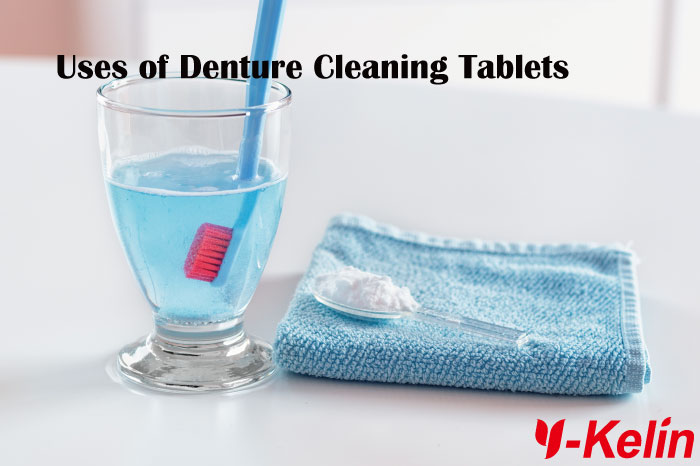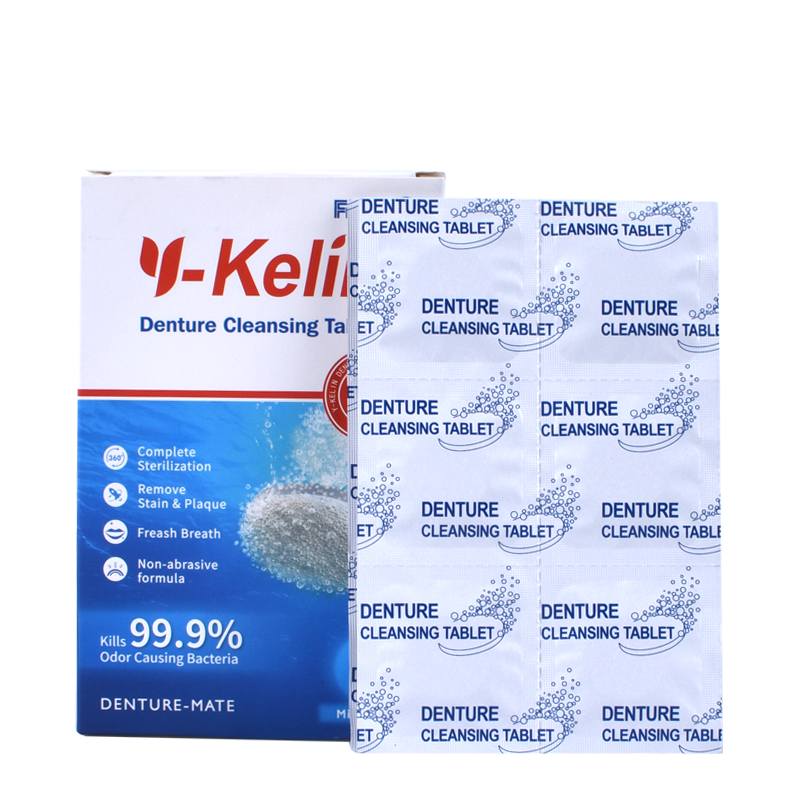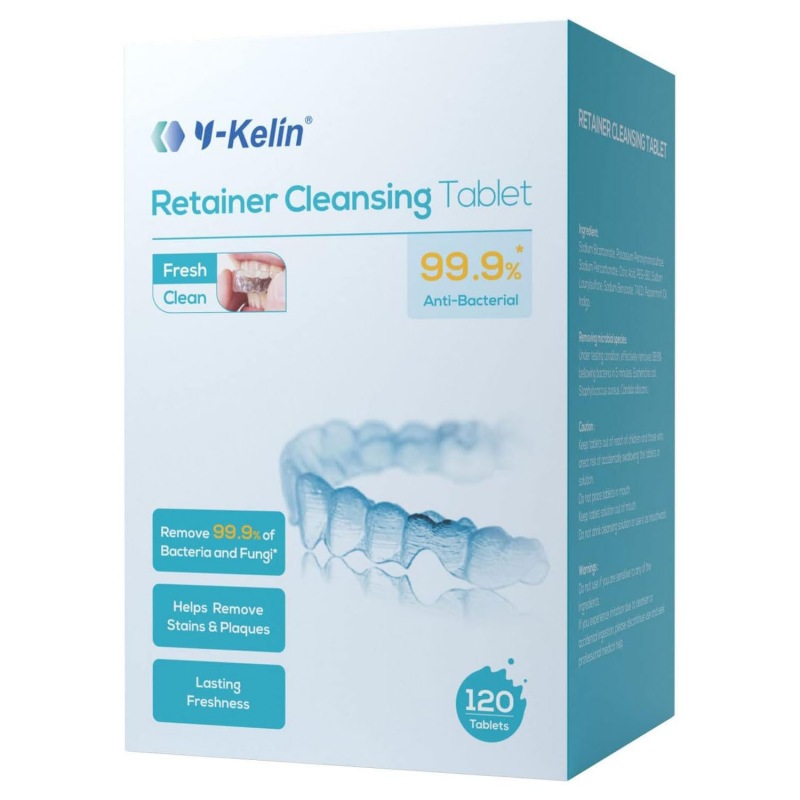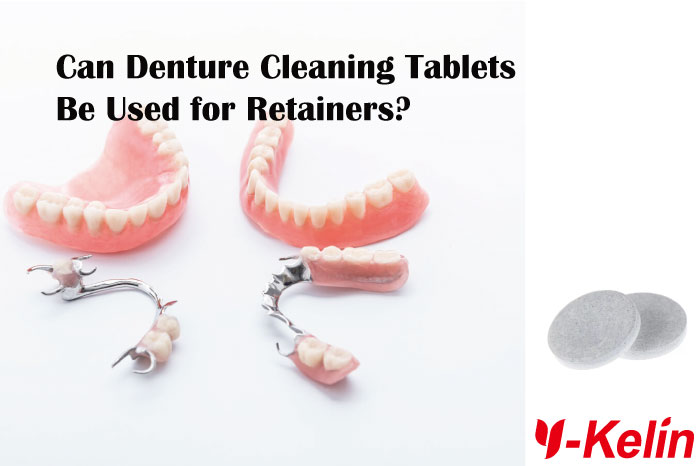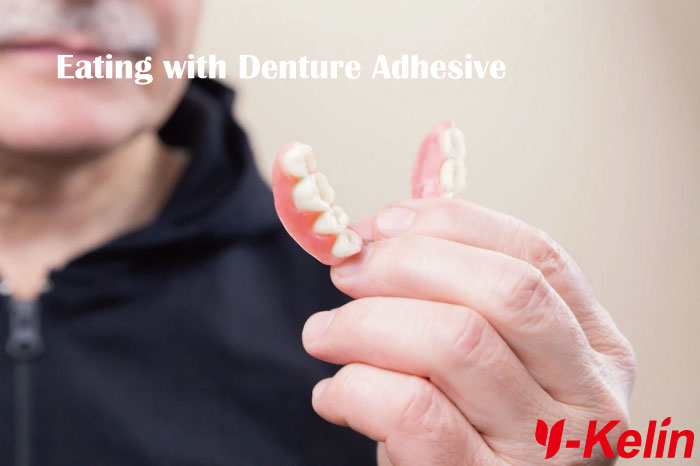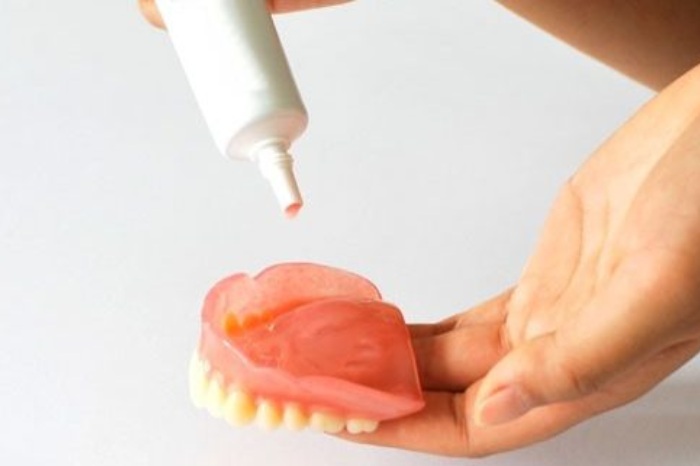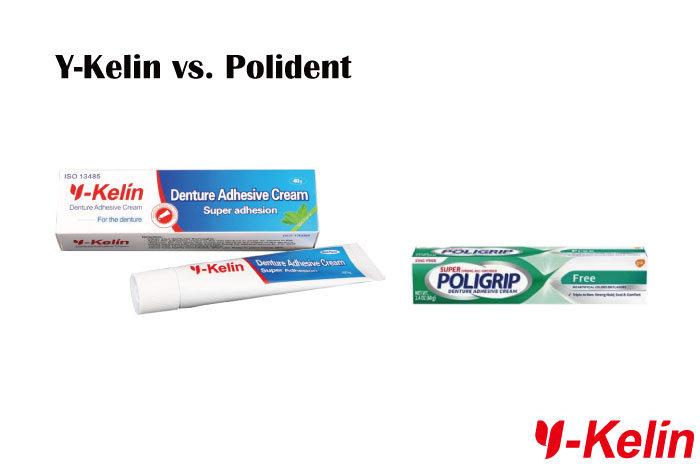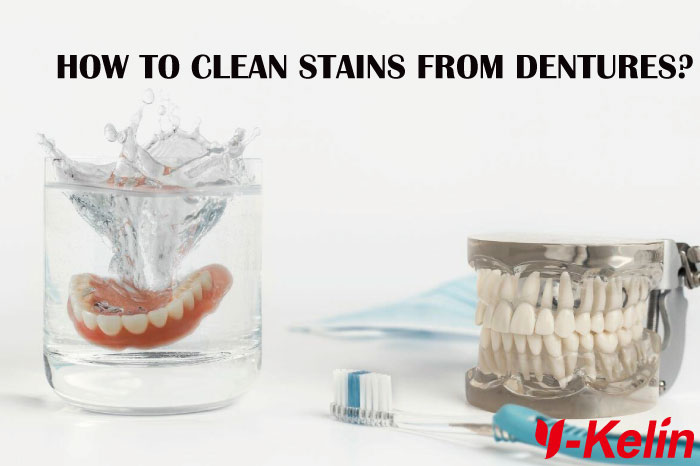
HOW TO CLEAN STAINS FROM DENTURES?
Published On:
If your dentures have ugly stains, you are not alone. Many people struggle to keep them clean. These stains can be embarrassing and hard to remove. But don’t worry, I have some easy solutions.
To clean stains from dentures, use denture cleaning tablets, baking soda, or a homemade soak with vinegar and water. Avoid harsh chemicals that can damage the material. Regular cleaning prevents buildup and discoloration.
Stains can come from smoking, coffee, tea, or food. Some stains are harder to remove than others. Keep reading to learn how to get rid of them and keep your dentures white.
HOW TO CLEAN STAINS FROM DENTURES?
How to remove tobacco stains from dentures?
Tobacco stains make dentures look dirty and yellow. If you smoke or use tobacco, these stains can build up over time and become tough to remove.
To remove tobacco stains from dentures, soak them in a mixture of warm water and denture cleaning tablets. Brushing gently with baking soda or a soft toothbrush can also help. Avoid using bleach, as it can weaken dentures.
Why does tobacco stain dentures?
Tobacco contains nicotine and tar, which stick to dentures. Over time, they form a yellow or brown layer. This layer is not just ugly but also hard to clean.
Tobacco Stain Causes and Effects on Dentures:
| Tobacco Stain Causes | Effects on Dentures |
|---|---|
| Nicotine | Turns dentures yellow |
| Tar | Causes brown buildup |
| Heat from smoking | Weakens denture material |
Best ways to remove tobacco stains
- Use denture cleaning tablets – Soak dentures in warm water with a tablet daily.
- Brush with baking soda – This helps scrub away stains gently.
- Try white vinegar – Soaking dentures in a mix of water and vinegar for 30 minutes can help remove stains.
- Limit smoking – The less you smoke, the fewer stains you will have.
If tobacco stains become too bad, a professional dentist can polish the dentures.
Suggestion: We don’t recommend to smoke with dentures. You can refer this article: Can you smoke with dentures?
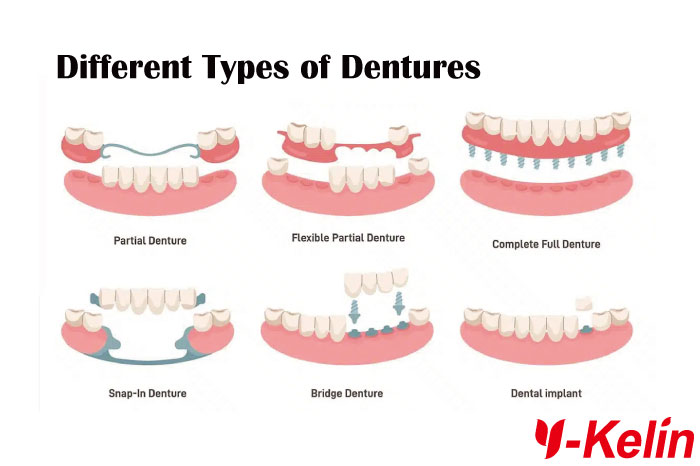
How to remove dark stains from dentures?
Dark stains on dentures can come from coffee, tea, red wine, or certain foods. These stains can be deep and tough to remove.
To remove dark stains from dentures, soak them in a solution of denture cleaner and warm water. Brushing with a soft toothbrush and using baking soda can also help remove stubborn stains.
What causes dark stains?
Dark stains come from deep-colored drinks and food. Some stains settle on the surface, while others get deeper over time.
Common Causes of Dark Stains and Their Effects on Dentures:
| Common Causes of Dark Stains | How They Affect Dentures |
|---|---|
| Coffee and tea | Leaves brown stains |
| Red wine | Causes deep purple stains |
| Certain sauces (soy sauce, curry) | Stains dentures over time |
Best methods to remove dark stains
- Use a denture cleaner – Soak dentures in a special cleaner to break down stains.
- Baking soda scrub – Brush gently with baking soda and a soft toothbrush.
- Hydrogen peroxide soak – This can help whiten dentures safely.
- Rinse after eating or drinking – This prevents stains from settling.
Regular cleaning can prevent dark stains from becoming permanent.

What denture cleaner removes nicotine stains?
Nicotine stains can be stubborn, making dentures look yellow or brown. Not all denture cleaners are strong enough to remove them.
The best denture cleaner for nicotine stains is an oxygen-based tablet cleaner. These cleaners release bubbles that lift stains from dentures. Baking soda and peroxide can also help.
Best cleaners for nicotine stains
Not all cleaners work the same. Some are better for tough stains.
Comparison of Denture Cleaner Types:
| Denture Cleaner Type | Effectiveness on Nicotine Stains |
|---|---|
| Oxygen-based tablets | Very effective |
| Baking soda | Good for surface stains |
| Hydrogen peroxide | Helps whiten dentures |
| Vinegar solution | Removes mild stains |
How to use a denture cleaner for nicotine stains
- Drop a tablet in warm water and soak dentures for 15–30 minutes.
- Use a soft brush to scrub off loosened stains.
- Rinse well before wearing dentures again.
If nicotine stains don’t go away, try soaking dentures overnight.
How do you remove tar from dentures?
Tar stains come from smoking and are harder to clean than regular stains. They build up over time and stick to the denture surface.
To remove tar from dentures, soak them in a strong denture cleaner, then scrub gently with a soft toothbrush and baking soda. Vinegar and peroxide soaks can also help.
Why is tar hard to remove?
Tar is sticky and bonds with denture materials. The longer it stays, the harder it is to remove.
Comparison of Tar Removal Methods:
| Tar Removal Methods | Effectiveness |
|---|---|
| Denture cleaning tablets | High |
| Baking soda paste | Medium |
| Vinegar soak | Medium |
| Professional cleaning | Very high |
Steps to remove tar stains
- Soak dentures in a denture cleaner for 30 minutes.
- Brush with a soft toothbrush and baking soda.
- Rinse well and repeat if needed.
Avoid using bleach, as it can damage dentures.
How to make dentures white again?
Over time, dentures lose their brightness and look dull or yellow.
To make dentures white again, soak them in hydrogen peroxide or a mixture of water and baking soda. Brushing daily and avoiding stain-causing foods also helps.
Best whitening methods
- Hydrogen peroxide soak – Safe and effective for brightening.
- Baking soda scrub – Removes surface stains.
- Professional denture cleaning – Dentists can polish dentures.
Regular cleaning helps keep dentures looking new.
Will vinegar damage dentures?
Some people use vinegar to clean dentures, but is it safe?
Vinegar can clean dentures, but soaking them too long may weaken the material. It’s best to use a mix of vinegar and water for short soaks.
How to safely use vinegar
- Mix equal parts vinegar and water.
- Soak dentures for 15–30 minutes.
- Rinse thoroughly with water.
Avoid long soaks to prevent damage.
What is the best denture stain remover?
Many products claim to remove stains, but which one is the best?
The best denture stain remover is an oxygen-based tablet cleaner. It works well for most stains, including nicotine, coffee, and tea. Baking soda and peroxide are also effective.
What is the brown buildup on my dentures?
If you notice a brown film on your dentures, it could be plaque or tartar.
Brown buildup on dentures is caused by plaque, tartar, or stains from food and drinks. Regular cleaning prevents this buildup. Soaking dentures in a cleaner helps remove it.
What is the best homemade denture cleaner?
Some people prefer homemade solutions over store-bought cleaners.
A good homemade denture cleaner is a mix of baking soda and water. Vinegar or hydrogen peroxide can also help remove stains safely.
Can I use hydrogen peroxide to clean my dentures?
Hydrogen peroxide is a common home remedy for cleaning.
Yes, hydrogen peroxide is safe for dentures and helps remove stains. Soaking dentures in a mixture of peroxide and water can brighten and disinfect them.
What does baking soda do to dentures?
Baking soda is a gentle cleaner that many people use.
Baking soda helps remove stains and freshens dentures. It is a safe and effective way to clean dentures when used correctly.
Conclusion
Keeping dentures clean prevents stains and bad smells. Regular cleaning with the right methods keeps dentures white and fresh. Use safe cleaners and avoid harsh chemicals.
Get in Touch with Y-Kelin
Have questions or need more information? Contact us today, and our dedicated team will assist you promptly.


Y-Kelin is a trusted manufacturer of high-quality denture care products, including denture cleaning tablets, adhesive creams, and retainer cleaning solutions, offering customized services for global partners.
